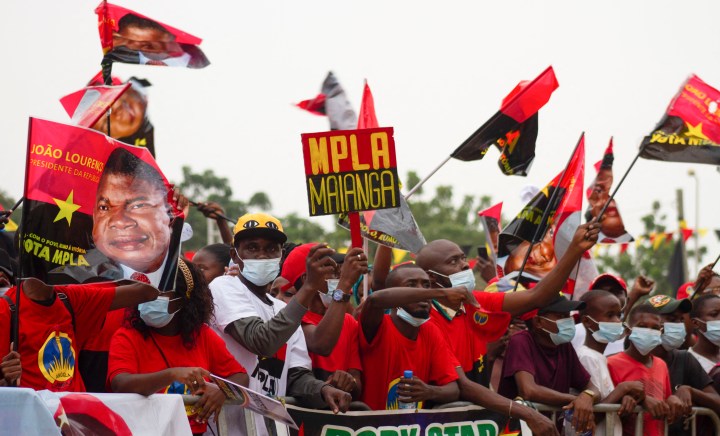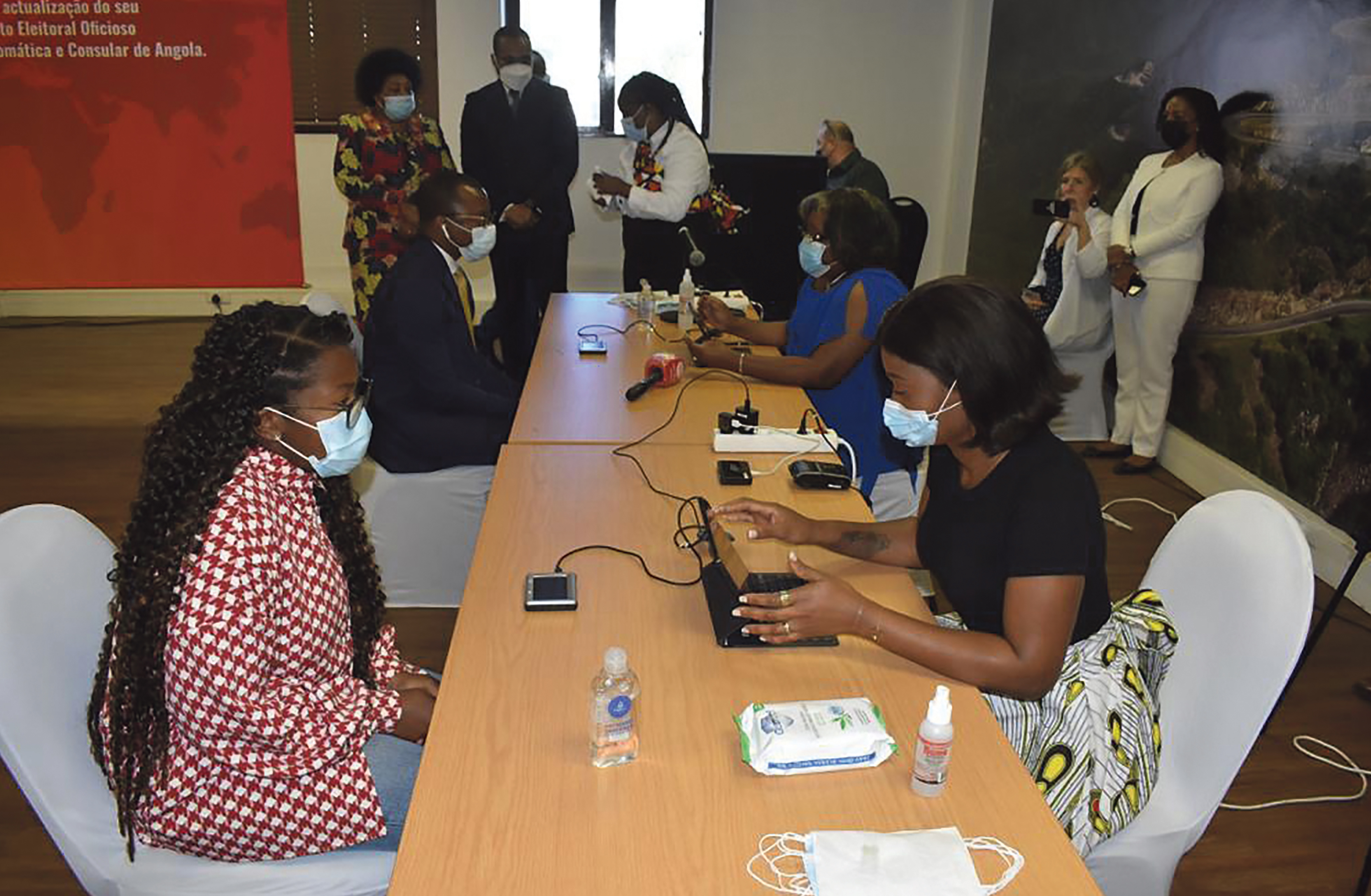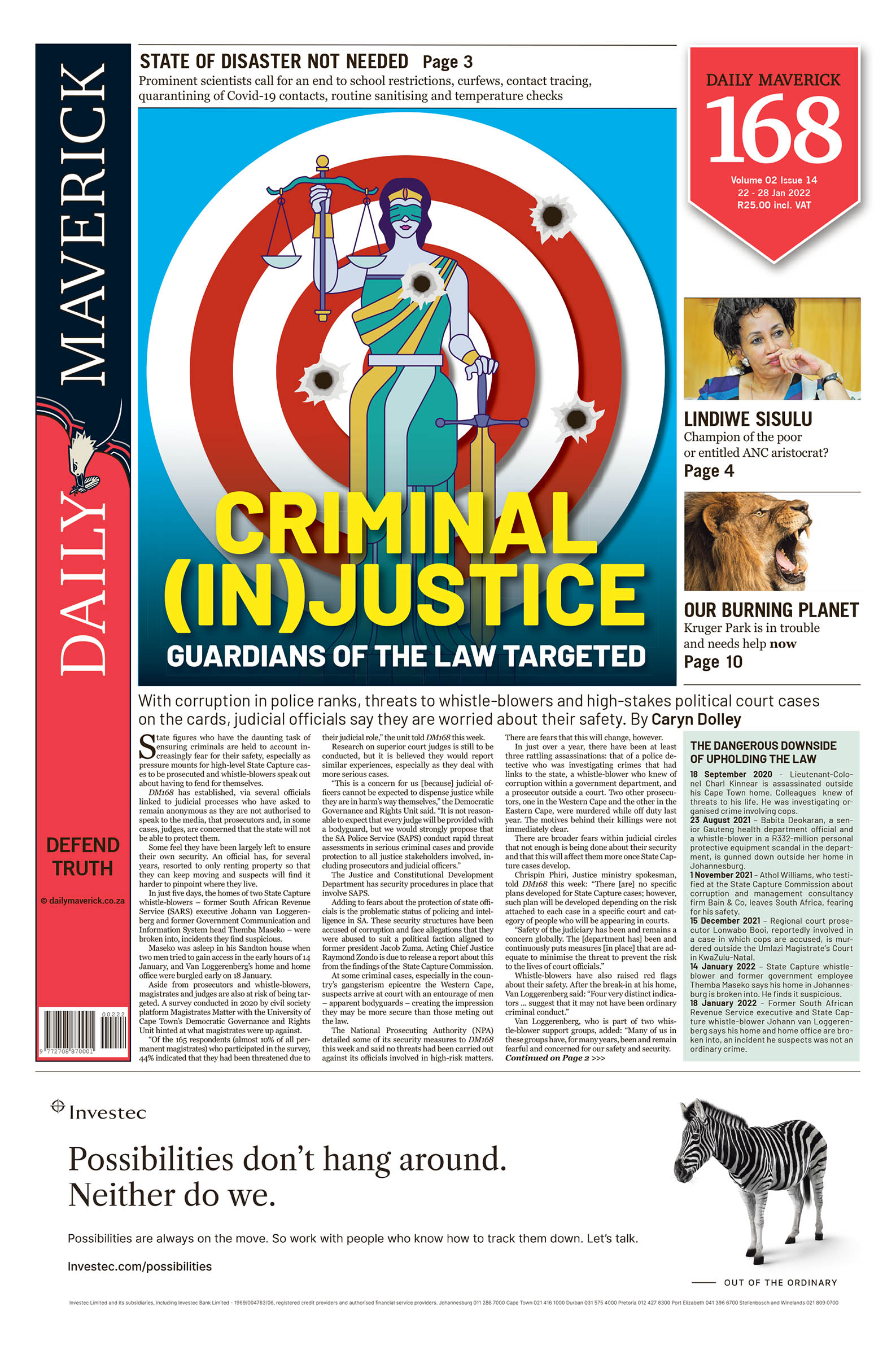diaspora vote
Angola’s ruling MPLA begins international voter registration drive but analysts believe move will be party’s undoing

For the first time, Angolans living abroad will be able to vote in what is likely to be a close election.
Facing the greatest electoral threat of its 46 years in power, the Angolan government launched a worldwide campaign in Cape Town this week that aims to register all of the country’s estimated 450,000 eligible citizens in the diaspora to enable them to vote in the August national elections. This will be the first time Angolans living outside the country will be able to cast their votes.
Needing every vote it can muster, the Movimento Popular de Libertação de Angola (MPLA) seems to be gambling that it can win a majority of the votes of Angolans abroad — even though the region’s diasporas generally back their governments’ opposition parties.
Angola’s three main opposition parties have formed a coalition that, polls show, could win as much as 64% of the vote, dislodging the MPLA, which has been in power since November 1975.
Underlining the importance the government attaches to the diaspora vote, Marcy Lopes, the Angolan minister of territorial administration, travelled to South Africa this week to launch the registration drive.
He witnessed Guimera Junior, who has just finished high school in Cape Town, become the first Angolan to be enfranchised abroad when she registered at Angola’s consulate-general, where her father works, on 17 January.

Guimera Junior (front left) became the first Angolan to be enfranchised abroad when she registered at Angola’s consulate-general in Cape Town last week. (Photo: Supplied)
Lopes said the registration was the start of a global registration drive, though not all of the country’s embassies and consulates-general were ready to go.
Maria Filomena Delgado, Angola’s ambassador to SA, said the embassy in Pretoria and the consulates-general in Cape Town and Johannesburg were completing training of the staff who would register the approximately 17,000 Angolans living in SA by the end of March.
“We appeal to the patriotic conscience of all citizens for their peaceful and exemplary participation in the process,” she said, adding that Angolans in South Africa without identity documents could apply for these to the two consulates-general.
The MPLA’s drive to enfranchise Angolans living abroad seems, on face value, rather puzzling, as in other nearby countries — such as Zimbabwe, for instance — the diaspora mostly supports the opposition and so is not allowed to vote.
Justin Pearce, an Angola expert at the University of Sussex, believes that most Angolans living in SA will vote for the opposition, particularly União Nacional para a Independência Total de Angola (Unita), which fought the MPLA in a bitter and protracted civil war that only ended in 2002.
Pearce suggests, however, that the MPLA may be counting on other, larger diaspora communities for support, such as those in the former colonial power Portugal, where it may get the vote of well-to-do professionals, many of whom likely have dual nationality. The pro-MPLA social elite has deep Portuguese connections.
He says the MPLA could also be counting on expats in the US, who mostly got there thanks to the oil industry and who are close to the establishment.
Lopes was asked at a media conference in Cape Town why his government was only allowing the diaspora to vote after 47 years in power. He explained that, with the advent of multiparty democracy in 1991, Angolans had theoretically been allowed to vote according to the country’s constitution, but the logistics had not been in place to enable this.
In 2010, the constitution was amended to allow Angolans in the diaspora to vote — but only if they were living abroad for work, study or medical treatment. Then, last year, Parliament — at the initiative of President João Lourenço — amended the constitution again to allow all Angolans with an identity document who are over 18 and are living abroad to vote, regardless of their reasons for being out of the country.
Lopes shrugged off the view expressed by several analysts that the MPLA would be facing the greatest threat to its long hold on power in the August elections.
It will be confronting an opposition coalition comprising three of the strongest parties, led by strong leaders. The main one is its old enemy, on the battlefield and in parliament — Unita, led, since 2019, by the youthful, capable and pugnacious Adalberto Costa Júnior.
He has formed the United Patriotic Front (FPU) coalition with two other opposition leaders — former Unita parliamentary leader Abel Chivukuvuku, now heading PRA-JA Servir Angola, and Filomena Vieira Lopes, leader of the Bloco Democrático, which was previously part of the Convergência Ampla de Salvação de Angola-Coligação Eleitoral (Casa-CE) coalition.
According to the journal Africa Confidential, the three-party coalition is poised to take advantage of widespread discontent with falling living standards over the past five years as Lourenço, who took over from longtime-president José Eduardo dos Santos in 2017, tries to diversify an economy dependent on oil and gas extraction.
Falling oil prices and the Covid-19 pandemic have put further pressure on the Angolan economy.
Pearce notes that Lourenço won kudos with voters when he took over from Dos Santos and lost no time in prosecuting some high-profile beneficiaries of the previous regime, nationalising their assets.
These included close family members of Dos Santos, such as his daughter Isabel, head of the state oil company Sonangol and widely reputed to have been the richest woman in Africa; and his son, José Filomeno (Zenu), who headed the national sovereign wealth fund under his father and has been convicted for corruption under Lourenço.
But “the goodwill generated by such measures could not mask the reality”, Pearce adds. “Poverty is visible on the streets of Luanda in the form of people scrounging for food in rubbish containers.
“Abandoned construction sites are a visible reminder of a bubble that burst. A middle class, whose expectations were raised during the oil boom, now struggle to buy basic necessities,” he said.
“Citizens born after the war will be voting for the first time, a generation for whom the old slurs against Unita are meaningless. No wonder the MPLA looks worried.”
Africa Confidential said a recent opinion poll by local research company Angobarometro showed that Adalberto would, on his own, win an absolute majority (53%), 23 points clear of Lourenço. The poll indicated that Chivukuvuku and Vieira Lopes would earn 11% of the vote, meaning joint FPU lists could garner 64% of the vote.
Some legal and administration barriers still confront the opposition, however, and these could prove to be key. Chivukuvuku’s PRA-JA Servir Angola has been battling for over a year to secure registration by the constitutional court, which functions as an electoral court and vets the registration of political parties.
When DM168 asked Lopes if the MPLA was concerned about the challenge from the opposition coalition, he shrugged off the question. “There is no very strong coalition,” he insisted, adding that this notion needed to be dispelled.
He said coalitions could only be formed from parties already legally registered. Everyone would have to wait to see if the constitutional court would register the proposed coalition to enable it to contest the elections, he added.
Lopes also noted that, under Angolan law, a political party could only belong to one coalition, which could present a problem for the new coalition.
He seemed to be referring to Bloco Democrático already belonging to the Case-CE coalition, but Pearce said it had left that coalition and was now a separate party.
Opposition parties accuse the MPLA of using the constitutional court to thwart them. After the president’s former aide Laurinda Cardoso was named president of the court last year, it ruled in October that the election of Adalberto as Unita leader in 2019 had been illegal on the grounds that he then still held dual nationality — Angolan and Portuguese.
Adalberto has since renounced his Portuguese citizenship and, in response to the court ruling in October last year, Unita re-ran its elective conference that overwhelming endorsed Adalberto as leader. The constitutional court has not ruled on the legality of the new election.
Lopes, however, told DM168 that he did not think that Unita would choose to contest the election as part of the new coalition anyway as that would deprive it of its “strong brand appeal”.
Pearce disagreed, saying: “I believe that Unita is prepared to run in a coalition, particularly since it would be by far the largest party in the coalition, hence with little risk to its identity.
“I think that ACJ [Adalberto], as leader, has convinced other opposition parties of his sincerity. He has certainly succeeded in winning the confidence of people who would never have voted Unita previously.
“I wouldn’t be surprised if the government finds other opportunities to challenge the opposition coalition on legal technicalities. Even if the courts rule against the government, this is a huge drain on the time and resources of opposition parties when they have other things to do.”
Pearce also pointed out that the opposition had expressed grave misgivings about last year’s amendments to the electoral law that significantly diminished the independence of vote counting, in particular.
The law centralised the vote count, eliminating counting at the municipal and provincial level, which the opposition said effectively removed important checks against vote-rigging. DM168
This story first appeared in our weekly Daily Maverick 168 newspaper which is available for R25 at Pick n Pay, Exclusive Books and airport bookstores. For your nearest stockist, please click here.

[hearken id=”daily-maverick/9041″]

















 Become an Insider
Become an Insider
Comments - Please login in order to comment.